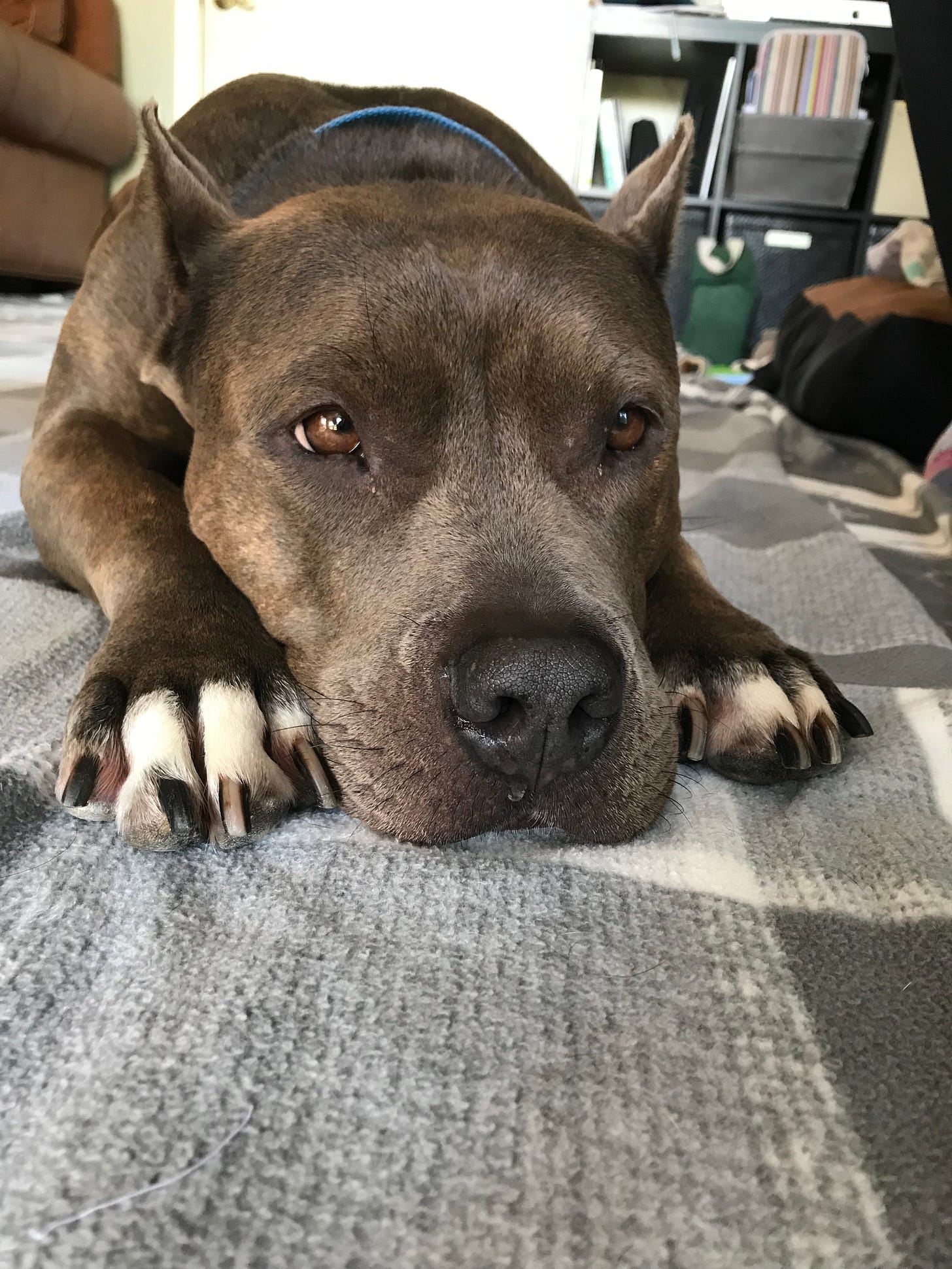11 Ways I Ruined My Life (and How I Live Now)
How might you be sabotaging your life?
Hello & welcome to another edition of Beyond Self Improvement!
Last Wednesday, I wrote The Problem With Rules and What to Do Instead.
We have 26 new subscribers to Beyond Self Improvement since last Wednesday. My goal is 1,000 subscribers by December 2023. If you aren’t already, join 525 lovely people by subscribing right now:
This week, I’m trying something new: a 3-sentence article summary at my friend Vinit’s suggestion. Let me know what you think.
The Article in Three Sentences
Embark on a transformative journey as I candidly reveal 11 self-sabotaging habits and how overcoming them can unlock profound insights into your personal growth. From tackling isolation to conquering perfectionism, my story explores the power of valuing skills, practicing gratitude, and embracing authenticity. Discover how mindfulness and self-discovery paved the way for a happier, more intentional life in this thought-provoking reflection.
Dear Friends,
Few of us intentionally ruin our lives, though some may self-sabotage to gain attention. Most of the time, we are unaware of how we are wrecking our sense of well-being or that a better way of living exists.
While lasting contentment, joy, and satisfaction are elusive, dissatisfaction is more reliable. Some of our behaviors are nearly guaranteed to bring about sorrow and suffering.
*
Here are 11 ways I ruined my life and what I do differently today:
Assume your problems are unique. I never used to talk to anyone about my difficulties. Instead, I suppressed and ruminated over them like a foot soldier under a heavy load.
Shame and guilt kept me in secrecy. I was embarrassed and thought I was the only one struggling. The few times I ventured to speak up was met with, “Man, that sucks. Well, I gotta go.” This only reinforced the belief that my problems were unique and unworthy of others’ time and consideration.
After my divorce, I joined a local Buddhist community and realized that my pain was the pain. Powerful emotions like fear, sorrow, regret, doubt, anger, rage, depression, anxiety, guilt, shame, grief, sadness, and loneliness were shared by all. This realization alone has been the greatest gift of the spiritual path and has relieved so much of my silent suffering. (see: A Reliable Way to Consistently Feel Seen In a Lonely World
Don’t learn any valuable skills. People used to talk about the importance of character, being honest, and taking responsibility. But with the advent of cameras and self-help gurus like Dale Carnegie, image was promoted as superior—a warm smile, a firm handshake, and stylish attire.
This was great news because I didn’t want to work hard. I just wanted to look good. I was curious but studied only a little. I took up trumpet but never practiced. I played soccer but never practiced juggling or shooting.
Today, I see skills as profoundly important. I reinforce my stepkids’ practice, reminding them of the value of skills building. A potential employer may seek a graphic designer who can edit videos. A friend may invite you to travel through South America, where your Spanish skills will be helpful. You can never have too many skills.
Don’t be self-disciplined. To say I lacked discipline is an understatement. I used to opt for ease and comfort or the “path of least pain.” After school, I ate junk food and watched TV rather than studying. After a long day at a job I disliked, I relaxed instead of looking for a new job.
I’ve since realized discipline is critical to a life well-lived. The most painful tasks tend to be the most satisfying. “So far, I’ve only managed to understand that what is very difficult tends also to be very rewarding,” says Russell Max Simon in a recent newsletter.
It’s Monday afternoon, my head hurts, my brain has yet to come online, and I feel as motivated as a high schooler. I’m plying myself with my fourth cup of tea, but it’s not working. Writing this article is miserable today, but I’m committed to getting at least the “shitty first draft” done by day’s end. Great things result from great discipline (and hefty doses of self-compassion).
Never appreciate anything or anyone. For most of my life, I took everything and everyone for granted. I had a scarcity mindset, forever thinking, “If I had X, I would be happy, and my life would be complete.” Unsurprisingly, I always wanted a faster car, better looks, and more money. I was negative and judgmental, too, regularly complaining about teachers, bosses, politicians, corporations, landlords, and even systems.
It wasn't until I started a gratitude journal that all the goodness in my life revealed itself. I started appreciating having a roof over my head, indoor plumbing, and living in a safe neighborhood. I began noticing all the little things I had overlooked in my pursuit of money, accomplishments, and recognition—the sky between the branches, the clouds lit up by the morning sun, and the cool air on my skin. Awareness of all that I had been missing brought me tremendous joy. I became contented, cheerful—and, dare I say—happy.
Always try to be perfect. For years I thought if I could get everything just right, I would avoid conflict and have a smooth, trouble-free life. I tried doing everything perfectly, whether driving, chopping onions, or being honest. I was driven to seek approval and, most crucially, avoid ridicule. But perfectionism is a grueling and exhausting religion, demanding that we meet an imaginary and impossible standard.
Not until reading Brené Brown’s Atlas of the Heart did I learn that perfectionism is driven by shame, the feeling of not being good enough. “Ryan, not feeling enough is your biggest challenge,” said my last therapist in our final session. “And your goal as a parent is for your stepkids to feel good enough.” Today, I still struggle with perfectionism yet regularly stop at “good enough,” which is easier and more satisfying.
Think too big. I used to think simple things were for simple people and that a happy life meant outstanding achievements. You know, like earning a Nobel prize or saving countless lives like Mother Theresa. The problem, as mentioned before, is that I didn’t have the work ethic to match my ambition.
I seldom, if ever, acknowledged my accomplishments. If I read twenty books in a year, I should have read one hundred books, as Buffett recommends. I should have climbed 500 like my climbing partner if I had climbed fifty mountains.
Eventually, I realized that being featured on the cover of the Wall Street Journal was not my dream but that of my impoverished ego. Knowing this freed me to appreciate myself for who I was and celebrate my achievements, no matter how tiny or insignificant.
Try to please everyone. I used to think that if people approved of me, my life would be complete. So I did everything to get people to like me. I twisted myself into a pretzel, shape-shifted through conversations, and made self-deprecating jokes. The more unfriendly people were, the more I tried to win them over. Brené Brown refers to this as a “hustle for worthiness.”
Like perfectionism, I tried to please others because I didn’t feel okay just being me. Eventually, I saw how destructive and insidious people-pleasing is. Instead of trying to get others to like me, I now accept and approve of myself, which leaves me feeling whole, grounded, and empowered.
Wait until someone saves you. It took me a very long time to realize that I had been secretly expecting someone or something to keep me from life’s difficulties. I expected the right job or company to rescue me. I believed the right woman would complete me and make me happy.
Finally, I realized that nothing and no one would save me or protect me from life’s uncertainty. I went into sales, worked hard, and paid off my debt. I learned how to give myself the love I had desperately sought from a partner. Today, I feel accepted and loved whether or not I receive it from others.
Cope with pain in a way that creates suffering. I used to think suffering was an inevitable part of life. Everyone around me was living the same way: grinding away at jobs they disliked while counting down the days to retirement. I joined the rat race, but wondered, “Is this all there is?”
Eventually, I came across a quote by the Buddha: “I teach one thing and one thing only: suffering and the end of suffering." This was revelatory. While the Buddha likely didn’t say this, the point remains—the possibility of ending suffering existed.
I discovered that I was making myself miserable through my fear, ignorance, and confusion. Becoming conscious of my behavior allowed me to begin choosing my response to pain rather than reacting mindlessly. Pain is inevitable; suffering isn’t.
Ignore the big questions of life. We all grow up hearing Socrates’ invocation, "Know thyself.” The problem was that I didn't know who I was or where to start. So I buried my head in the sand. I wasn’t ready to accept my good qualities, let alone acknowledge my shortcomings. Living in ignorance helped protect my ego and let me blame life rather than assume responsibility.
Once I learned who I was, what I valued, my strengths and weaknesses, and why I behaved the way I did, I began making conscious, intentional choices. I started doing things that were fulfilling. I took responsibility for my life and stopped being a victim or looking for someone to save me. I started seeing possibility and acting out of love, not hate.
Expect happiness to show up one day. As I wrote in The 4 Levels of Happiness (Buddhist Psychology), I thought happiness would show up one day if I went to school, got a job, and lived my life. When it didn't work, I doubled down on my efforts. But lasting satisfaction proved elusive.
Happiness, I discovered, is less about achievements or material wealth and more about the absence of suffering. It results from what I do with my intention and attention. Meditation and mindfulness protect me from my mind’s negativity and help bring about peace, joy, and contentment.
*
Ruining your life is easy. Any point on this list will harm your life. Several are enough to ruin your life altogether.
If you don’t want to be miserable, avoid this list. Instead, do practices that bring about lasting happiness. Initially, the spiritual path takes tremendous diligence, systematic effort, and much letting go. Over time it becomes easier to sustain these qualities of mind.
That’s all for this week. Thanks for being here, giving me this space to share with you, and for your ongoing love and support. I’ll be back in your inbox next Wednesday.
Stop ruining your life,
Ryan
Whenever you’re ready, I can help you transform chronic stress and worry into ongoing calm and feeling in control in 90 days. Schedule a free, 30-minute discovery call today.




Still working on getting away from many things on this list, but crucial to my journey is feeling seen and heard through the process without the attachment to external validation. Thanks for helping by sharing your own perspective. It truly does make a difference to know we’re not alone.
Still, I can’t help but wonder if those needs I have are ego-driven or not. The work continues… ☺️
Felt like I'm reading my journal entries from a year ago 🙈😅 It's crazy how we slipslide into patterned behaviours as a result of our conditioning from the movies, the gurus, and whatnot! Glad you mentioned Dale Carnegie - I learned a lot from him but later realized how much I needed to unlearn.